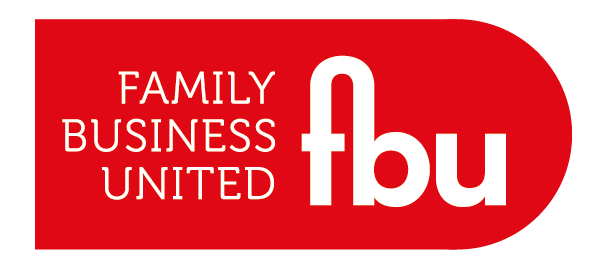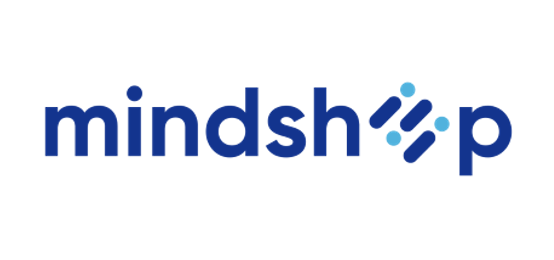Working hard is a difficult message to sell these days. Yet it is key to success in business as much as it is personally.
We are in the free lunch generation, the gig generation; dining out on incredible technological advances made on our behalf in the name of driving national pride and shareholder value.
The technology of our youth is not technology.
The technology of our middle years is exciting and vital; after all it was our generation that created it and first used it.
The technology of our latter years is just wrong and shouldn’t be allowed.
I can’t find the source for this comic quote (apologies to the author and for the paraphrase), but it says something important about our relationship to the world. What seems normal (the world we grow up with; the technology of our youth) is taken for granted.
Our cheap, immediately available, smart technology depends on complex supply chains, distribution channels, infrastructure including cars and roads and money, in addition to the data systems it accesses. However, the many thousands of people-years of hard work used to innovate and create the smart technology that is now ubiquitous may as well not be there for the personal user.
I don’t mean they don’t matter. Just that we don’t notice them unless they are not working, and often we are not conscious of them, when making wonderfully trivial use of the great power they place in our hands.
Hey Siri; who is Bill Gates? (Lol)
My point is that these powerful tools make what was once impossible simple, and to my mind for many of the generation of the cyborg revolution we are in, they undermine the perceived value of hard work.
Tools that are so powerful that they make everything easy, bring the distant within reach, and place all knowledge at our finger tips, take away the point of practice, and demean expertise. Where the latest tool is a smarter brain than yours or mine, what use is there for the human mind?
These tools replace our bodies, and for many are demotivating to the use of the very thing we are; a physical and energetic being.
As with all revolutionary changes, smart technology changes our relationship with the world, and we are in the process of adapting. The technology is incredible, magical even, and yet the smart phone is simply our generation’s hand axe.
As our cyborg generation adapts and fights for the new rules of an AI world, we mustn’t lose the value of hard work in an world where AI and machine learning are taking up the slack of adapting itself.
Plastic creatures
Humans are like Morph (look it up on YouTube; what a great concept).
Like our smart technology, we are smart technology. We are plastic, which is our great strength and of course a weakness.
The plasticity of the brain means we can multi-niche. Not hidebound by too much instinct, our brains constantly reshaping as they resonate emotionally to the signals coming “in here” from “out there”, plasticity has proven a world class strategy.
Born anywhere: mountain, desert, river valley, city, slum; we can adapt in life and develop the habits and knowledge needed to make the niche habitable. For the human being learning is adapting and learned capabilities become new in-life evolved instincts.
The development of memory, of society, of language and a critical narrative, a history to pass down knowledge; these are all technologies developed by our plastic brains, passed from culture to culture to help us survive anew.
You may not see these things as technologies. Technology might mean GPS, SpaceX, Machine Learning, losing at Go.
This is because they are the technologies of our youth; normal and taken for granted.
This same plasticity is our vulnerability too.
If our minds are shaped by what is received from the environment, then the nexus of brain and environment is critical.
Current research suggests that the billions of connections of neurones that make up our mind, our own smart technology system, our “neurome”, are reshaping constantly inside our the protective box of our heads in response to what is coming in.
This is great news; we are not set in our ways, and can constantly re-author our lives.
However, unless there has been the development of a critical curator of this flow of data in each of us in the form of wisdom, values, and experience, then we are receivers without editor.
Indeed, even with these values in place, as primarily unconscious actors we are rarely aware of the influences shaping our brain as it is happening. We rely on processes beyond our awareness to maintain a healthy neurome.
In science the editor comes from our cognitive bias, our natural systems for deletion of over stimulus. These biases are more or less set, through the generations, in our social and familial settings. In the past guidance has mainly been in a structured form and within the physically present social group.
In the cyborg revolution, that’s history. These days the unedited stream of data forcing its way into our minds and those of our children and grandchildren comes straight out of the beautiful, stimulating, addictive and free world of smart technology. Our brains are quick to habituate, and, in a way, corporate technology is invading our physical brains, and changing us in ways that are invisible to the eye, but obvious to the human.
This revolution has over-taken us already. Many of us, especially our kids, live in a multiverse; a myriad of online worlds where the connection is human to digital to digital or human, received as if they were the old world.
It’s a wild west world with a new politics that the inhabitants will need to fight for anew.
Oh dear. I sound like I am talking of the technology of our latter years, ahem, to be prohibited!
That’s not the point of this article.
What I am saying is that the virtue of a willingness to work hard has never been more clearly recommended as a way to create our own success, because with repetition of challenging learnings we can reshape our own brains. We each need to take this point on board personally given the pace of change around us.
Hard work is a very good strategy
Successful strategies very often depend on hard work.
Hard work is an exceptional approach to success. How hard work works is, these days, well understood. If we can be motivated by our inner leader to persist, then we have a chance of changing the structure of our physical minds, particularly through emotional phases, and emerge in a state of new found abilities. This can be a huge pleasure.
This is as true for learning to juggle, learning a new language, learning to code, learning to start up a business, learning how to be a good husband or father; for any significant challenge you like.
The plastic of our brains is strongly carved by emotions. They play a key part in creating memory (that is why emotional moments are more memorable). This includes the tough times when practicing a new skill, where we think about giving up, or in a new project team and it’s just not gelling and we think of bailing on the project, on a report where we have writers block and are stressing out about it; any new project worth doing will come together when we have committed to putting in the hard work needed to get through the tough parts.
Just like all our inherited social and economic structures, once created, they can be enjoyed. For most of us, there is more value enjoyed in hard won success than in free-loading.
The pleasure of free-loading is akin to gambling, more luck than anything, vacuous and transitory.
The learned pleasure of the success achieved through difficulty can create a positive mindset that seeks opportunity, chooses possibility, and encourages the commitment needed to make good things.
If hard work means anything that we find hard, for example handling our own feelings, dealing with difficult conversations with colleagues and partners, business or otherwise, then my reference to you is a comment from Dr Daryl Cross, a psychologist in our network, who says:
The juice of life lies outside the comfort zone
If you want things to get better, the first thing you need to be prepared for is more discomfort. A relationship going in the wrong direction will not get better without talking about the real problems. It still may not get better of course, but it will start to resolve when you take the plunge and do the hard work of talking about the hard things.
Technology is positive
I said that I do not see technology as a negative. However I understand that to many it seems overwhelming. The power of global competition, and the pace of change can easily make applying yourself to learning in the old fashioned way seem a waste of time.
That’s to miss the point of being human and the point of technology. Technology is just today’s set of tools, and the challenge is to become a tech zen master. To stay cool while using the tools.
To remain fully human, to maintain your principles, to choose the shape your brain is shifting to be, and to use tools as they have always been used; to add to you.
Psychologists talk of two contrasting attitudes about perceived control. The person with an external perceived direction of control (locus of control in the jargon), sees outside forces in control of their choice. “All these coders, all these robots, all these global tech giants, it’s overwhelming, I may as well order a pizza on my ipad.”
The person with an internal perceived direction of control sees their own possibilities. “Technology may be destroying many jobs, but at the same time it’s making new ones. Who knows what skills will be needed, I will take this role and do the hard work and get good at it quickly over the next few months or years. When its not needed maybe my skills will be relevant for the next role. Hey; especially the skill of flexibility, motivation, application and new learnings!”
Hire for attitude. It’s a choice you can both make.
Here are some great questions you can ask yourself about this topic
What is my ability to focus and work hard? (Give yourself a score out of 10)
Do I or others in my team need to get better at this?
Am I working on the right things, and do they relate clearly to my own and my organisations core purpose?
Comments and shares are always welcome and if you want to you can get in touch with me at nick.mayhew@alembicstrategy.com




